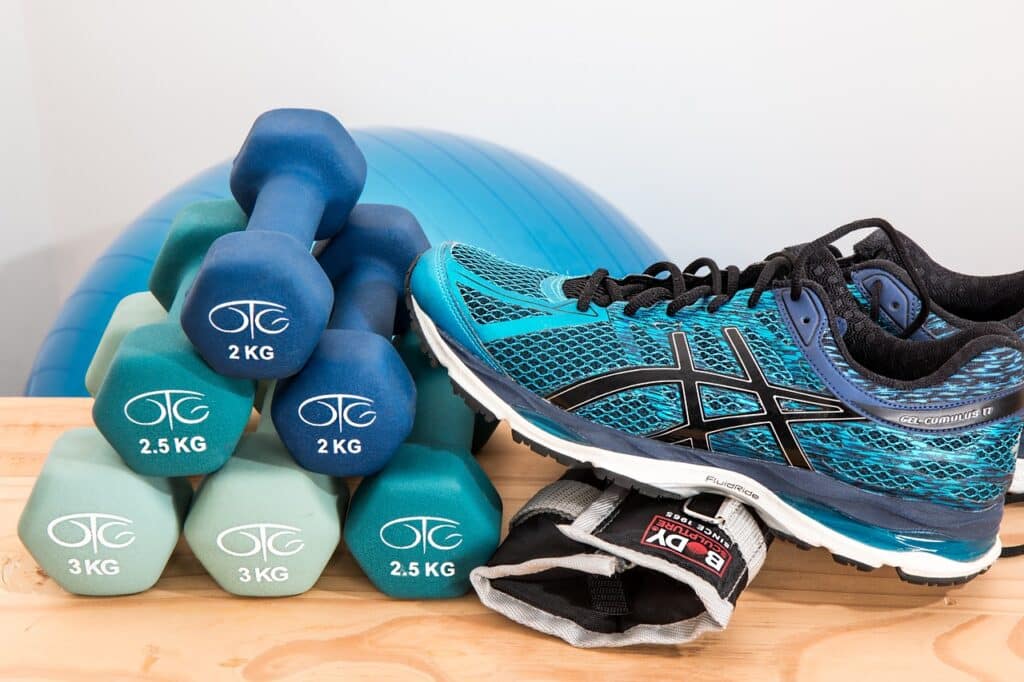In addiction recovery, it is important to find balance in your life. This means that you should have healthy habits to replace the unhealthy ones you had when you were using drugs or alcohol. For a lot of us, activities like exercise and our careers become far more important and meaningful when we’re in recovery.
However, there is always a possibility that these activities can develop into harmful compulsions. Work can take over our lives, causing us to neglect friends, family, and ourselves. Exercise, important as it is, can also develop into a harmful pattern, potentially causing injury.
These situations are examples of replacement addictions. They can be massive obstacles to lasting recovery, if not recognized and addressed. Replacement addictions can also include hobbies like gaming, replacement addictions such as gambling, and even sex addiction.
In this blog, we’re going to examine exercise and work addiction, neither of which are what they sound like.

Exercise Addiction? You’re Kidding, Right?
Nope. Although it’s not fully understood and more research needs to be done, exercise addiction is definitely a thing. Related to eating disorders and body dysmorphia (a condition where someone obsesses over the perceived flaws in their appearance), exercise addiction follows the same patterns of compulsive behaviors that drug addiction does.
For example:
- Obsessive behavior over exercise
- Continuing intense physical exercise despite injury and damage to other parts of life (relationships, career)
- Evasiveness around the activity
- Exercising despite a desire to stop
There may be a chemical cause behind exercise addiction in some cases. Exercise can cause the release of feel-good chemicals in the body such as dopamine and endorphins. Dopamine responses also drive drug addiction.
Let’s be clear before we move on: Exercise is beneficial and important in recovery. Aside from the obvious health benefits, it’s also a great way to fight substance cravings and improve your mood. However, like anything, exercise can become an unhealthy compulsion.
Workaholism: Another Substitute Addiction
“Workaholic” isn’t just a nickname for someone who seems to live to work instead of the other way around. A workaholic works because they need an escape from stress or have a compulsion to achieve success by any means necessary.
Like any other form of addiction, work addiction is often about escape. A workaholic may work as a way to avoid outside social problems such as a death in their family, financial problems, or a divorce. Working is also a way to avoid social situations and obligations, or as an unhealthy coping mechanism for grief or guilt.
Workaholism is especially insidious because there’s a degree of social approval to it. Unlike drinking or drug use, a workaholic can look like a great example to other employees despite the harm they often do to themselves. But as is the case with exercise addiction, workaholics face similar harmful consequences.
For desk workers, long hours spent in a chair can cause serious health complications. Workaholics may spend a lot of time eating junk food from vending machines instead of taking time to eat meals. Neglected relationships can cause loneliness and depression.
It’s easy to fall back into substance abuse if you’ve developed a work addiction.
Substitute Addictions: Finding Balance
It’s easy in recovery to develop substitute addictions as we recover. How many of us took up vaping or smoking (or found ourselves doing more of it) even after we received treatment for substance abuse?
Resisting them means finding balance.
Unfortunately, finding balance in life isn’t always easy to do by ourselves. Sometimes, we need an outside force to make us see where our problems lie. For those of us in recovery, this is actually good news: we have loads of people to help us see balance.
Case managers, therapists, and sober home managers can all help us recognize where healthy behaviors become harmful. They’re able to give us a fresh perspective which can allow us to adjust the balance in our lives and help us see where we need a helping hand.
In recovery, the best way to do that is to make recovery our priority. As important as work and exercise are, they can never take priority over our recovery. We always need to make sure our cups are full – this means taking the time to address our personal needs. Self-care, relaxation, and activities simply done for fun are all critically important in recovery.
A great way to get – and maintain – balance in recovery is through sober living.
How Sober Living Can Help Us Find a Great Life Balance.
Sober living isn’t just a great way to avoid drug addiction temptations. By living with people who are on the same life path as us, we’re able to stay accountable to our recovery and move forward into a life free from substance abuse.
It also means you have even more resources in life. Your roommates can help you find balance through their own examples and let you know if you’re taking something a little too far. Sober living is all about building healthy habits, routines, and goals.
Plus, there’s no better way to build healthy relationships than sober living.
Again, we’re not saying that working and exercising aren’t important – they are. But it’s equally important to recognize when they become toxic, and potentially damaging to our recovery. Sober living homes are a great safeguard against that.
Find a Sober Home with SoberLivingNearYou.com!
Finding a sober living home isn’t always easy. Too often, the hunt can mean browsing endless webpages without ever getting a clear idea if a sober home is the right choice for you.
Enter SoberLivingNearYou.com. Developed specifically to make the hunt for a sober home easier, our site aims to make your search for a sober home as easy as possible. We’ve carefully collected thousands of sober home listings and placed them at your fingertips. Browsing them is as easy as clicking.
Give recovery the boost it needs with SoberLivingNearYou.com!



